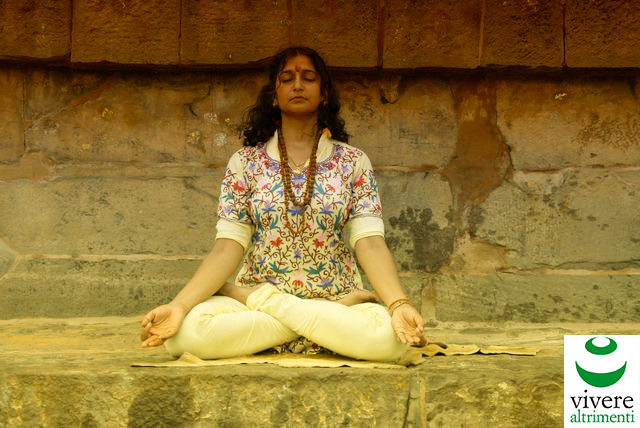 Talking about alternative Publishing and issues on Eastern spirituality and social aggregation models different from common standards, meeting Manuel Olivares.
Talking about alternative Publishing and issues on Eastern spirituality and social aggregation models different from common standards, meeting Manuel Olivares.
Viverealtrimenti project was founded in spring 2008, in Goa (India) by Manuel Olivares (sociologist, mainly active between London and Asia). It is shaped by the need for self-divulgation tools, after three successful publishing experience with the Roman publishing house Malatempora who had published: “Vegetarians how, where, why”, “Communes, communities, eco-villages in Italy” and “Communes, communities, ecovillages in Italy, in Europe, in the world”. Especially the last two texts were the only organic work (also available as guides), in Italy, on this subject and had a good publishing validation.
The simplest publishing tool, to begin with, was a blog. In April 2008, therefore, was created viverealtrimenti.blogspot.com, early structured as an online magazine, with several sections. At the end of that year begins to take shape, in Chiang Mai, in northern Thailand, viverealtrimenti website working in close synergy with the blog. Viverealtrimenti.com soon becomes the site of Viverealtrimenti Publishing House, created, in 2009, to divulgate what happens in the world less described by books and newspapers of mainstream or to present it in a more focused way.
Viverealtrimenti wants to be a popular project of instances that are not immediately related to what the abused and ordinary exists around us. Not a research for originality but of authenticity that, as such, can not be “otherwise” compared to a world dominated by the hetero-direction and the massification that results. I wonder if also represents a lifestyle: hopefully yes, when the theory, if it is not supported by facts, remains confined in the world, rather barren of ideas alone” – say Manuel.
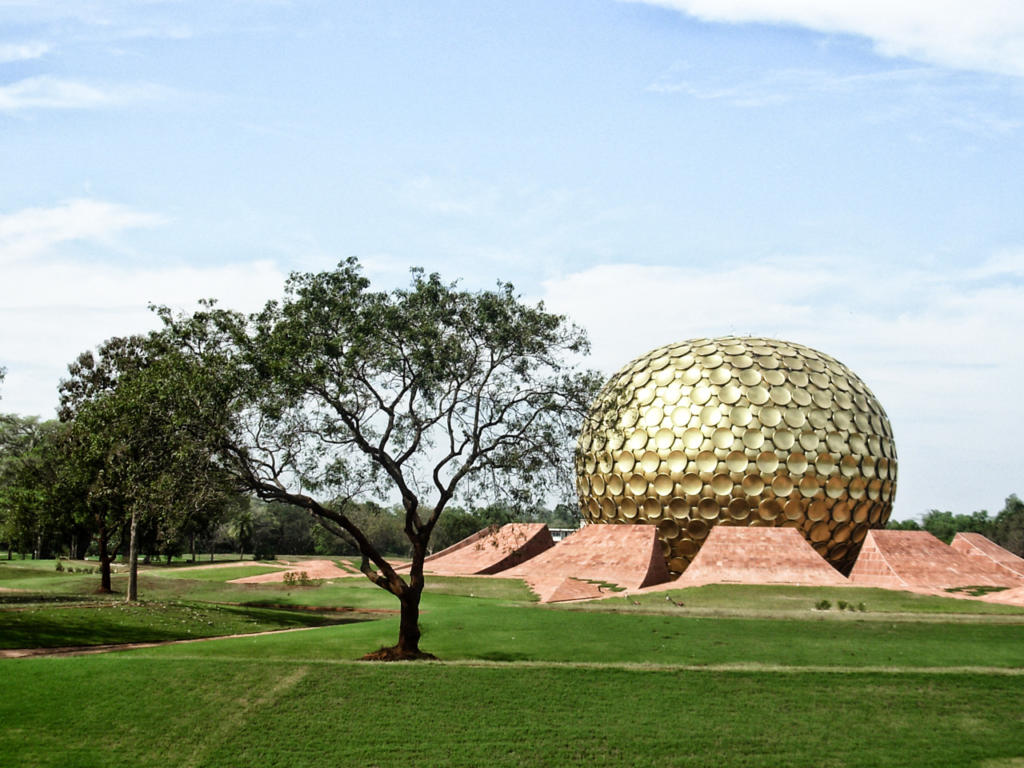 In May 2010, printed the first two titles for Viverealtrimenti: “Communes, communities and eco-villages”, which is meant to represent “flowering” of the two previous texts on the same subject, and “A Garden of Eden”, the first work of fiction by Manuel Olivares, set partly in imaginative communities and ecovillages and partly in India. In next years Viverealtrimenti catalogue is enriched with different, new titles, involving fairly established authors or experts of personal development. For example Fabio Guidi, psychologist specialized in psycho-synthesis, founder of Hodos community and author, for Viverealtrimenti, of “I miei anni con Gesù (My years with Jesus)”; Cristina Pacinotti, sister of the Italian cartoonist and filmmaker Gipi and author of “Luogo Comune (Common Place)” and “Juma Vitali”, holistic counselor, creator of Lifewingsmethod® and author of “The New Family; The communities of New Age”, in Italian and English version. Also in Italian and English has been published “Yoga based on authentic Indian traditions”, having as reference teacher the yogini, from Varanasi, Smriti Singh.
In May 2010, printed the first two titles for Viverealtrimenti: “Communes, communities and eco-villages”, which is meant to represent “flowering” of the two previous texts on the same subject, and “A Garden of Eden”, the first work of fiction by Manuel Olivares, set partly in imaginative communities and ecovillages and partly in India. In next years Viverealtrimenti catalogue is enriched with different, new titles, involving fairly established authors or experts of personal development. For example Fabio Guidi, psychologist specialized in psycho-synthesis, founder of Hodos community and author, for Viverealtrimenti, of “I miei anni con Gesù (My years with Jesus)”; Cristina Pacinotti, sister of the Italian cartoonist and filmmaker Gipi and author of “Luogo Comune (Common Place)” and “Juma Vitali”, holistic counselor, creator of Lifewingsmethod® and author of “The New Family; The communities of New Age”, in Italian and English version. Also in Italian and English has been published “Yoga based on authentic Indian traditions”, having as reference teacher the yogini, from Varanasi, Smriti Singh.
Last year was the time of “Gesù in India? (Jesus in India?)” the result of ten years of research (through books, the web and, mostly, on the field) having as basis of the holy city of Varanasi. During the drafting of the text started a fruitful collaboration between Viverealtrimenti and the Ahmadiyya Muslim community, of which we wish to speak soon.
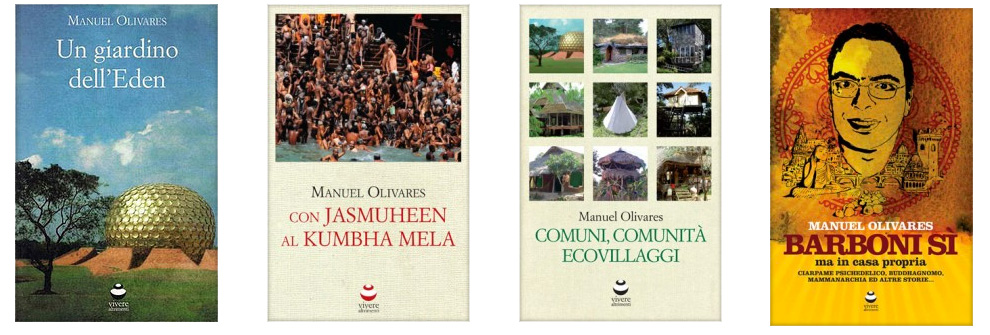 Starting from the birth of the publishing house until today there has also been an evolution in your career, in your work as a researcher and writer. What is in your research, how did it structure and created the text?
Starting from the birth of the publishing house until today there has also been an evolution in your career, in your work as a researcher and writer. What is in your research, how did it structure and created the text?
M.O. It would assume that the reality exceeds even the most daring fantasies and thus is the privileged field of research. For this reason – and I speak here as a researcher and author more than as publisher – I engaged more in writing of essays rather than fiction. I followed several lines of research, the first was that of the intentional communities and has produced three books.
For me it was very important, right now, to go on the field. I aspire to be “sensory” in the approach to my research interests. I’m not satisfied just with data, which can also be collected on line nowadays, I need to meet people, to “feel”, to smell, to taste, to digest atmospheres. The direct encounter is important for me, the creation of human relationships because I believe that the even emotions constitute important data. I do not think it is right to ignore the sensations (and the resulting emotional dynamics) emerging when they visit some places or particular persons, in my opinion they should be heeded for what they are. They can not be considered objective (although in my experience they are not infrequently proved valid) but they should neither be dismissed as phenomena should not interfere with the rational system of research. So I can answer you that research is important to have more or less significant origin in the experience and then proceed, synergistically, through a theoretical work. It is not a coincidence the texts I have produced, about intentional communities and ecovillages and recently about years Jesus maybe spent in India are, in part, travel stories.
“To assimilate a research to a journey in the world of ideas and on the field (with the various and related feelings)”, I think this is the way to progress to the writing of a text.
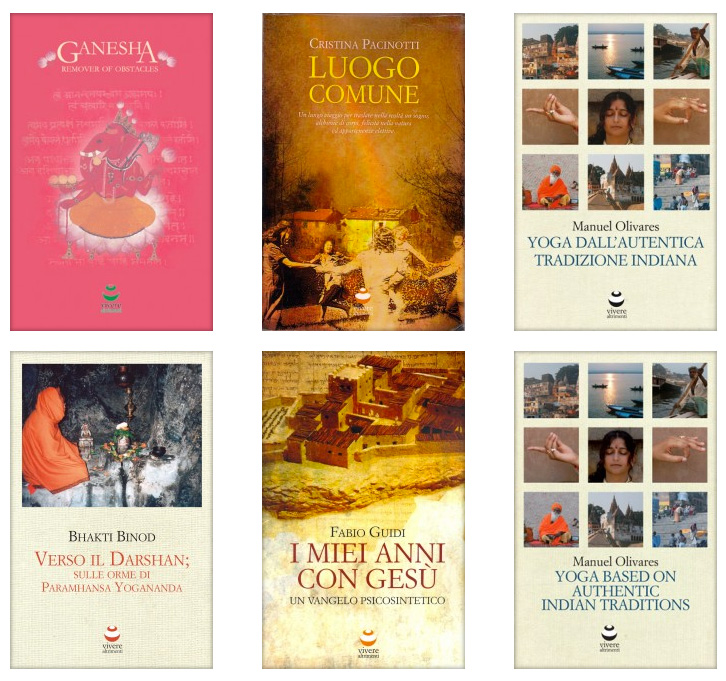 From the text “Communes, communities and eco-villages” (2010 edition Viverealtrimenti) to “Jesus in India?”: what happened?
From the text “Communes, communities and eco-villages” (2010 edition Viverealtrimenti) to “Jesus in India?”: what happened?
M.O. I speak here, again, as author, dimension which honestly I prefer to the one of publisher. Again: the journey. Between 2010 and today I lived in a nomadic way, between India, Thailand, London and Italy. I tried to be inspired as much as possible by experiences in different countries and different cultures, trying to assimilate them getting temporary. Another important issue for my Viverealtrimenti (but does not necessarily affect the more general divulgative project, where everyone has to find his own resonances and can “play his instrument”) is that the is not enough to roam around the world, it is also necessary to interpret it. Here, too, we are in front of a synergy between experience and theoretical processing. I have known people who have walked on many roads in the world without understanding, in my opinion, much because, although experiencing have excluded “hermeneutics” dimension and eventually end up bombing the neighbor with cosmopolitan events but, finally, in the absence a common thread, not relevant.
The issue of Indian years of Jesus fascinated me for long time, I found the first time in the text The Rajneesh Bible. I was about 25 years, therefore we’re speaking of twenty years ago. Living in India I read the bestselling “Jesus lived in India” of religions historian Holger Kersten, until just reading was not enough for me anymore and I started my first trip to Kashmir, the “promised land” of this research field! Of course since that time, other trips and readings (which I have mentioned in my text) followed, unforgettable experiences, encounters and extraordinary friendships.
Is your research on social and socio-urban alternative systems to the urban life, continuing?
M.O. Yes. Although I’d put them in a wider perspective. For the research about intentional communities and ecovillages, I was inspired by an Osho book (on Osho Rajneesh I did my thesis in sociology): The greatest challenge, the golden future. Osho proposed “a world of communes” as highly desirable, and in this I observed interesting resonances with what I found in some libertarian perspectives, both “classic” (Proudhon and Bakunin) and contemporary (Murray Bookchin).
I believe that community-based experiments can be a great stimulus in the search for a way of life less alienating, of Viverealtrimenti. I think, however, some attention is due, as I have written in more than one book, to sectarian rifts and forms of rejection of the world that can easily confine communitarian experiences in a self-marginalized dimension.
I have always maintained that these experiments should have a two-way relationship with the “ordinary world”, from which it does not seem wise to flee, while taking the necessary space to do with it does not affect in a negative way.
When the exchange between communities and the ordinary world is reduced, as a result of – even subtle – ” sectarian drift ” or an attitude – too often ideological – of rejection, I think many exciting opportunities for collective growth can be lost. This is reason why I find it vital experiences of intentional communities and ecovillages extends out of the niche and I think we’re assisting to interesting steps in this direction.
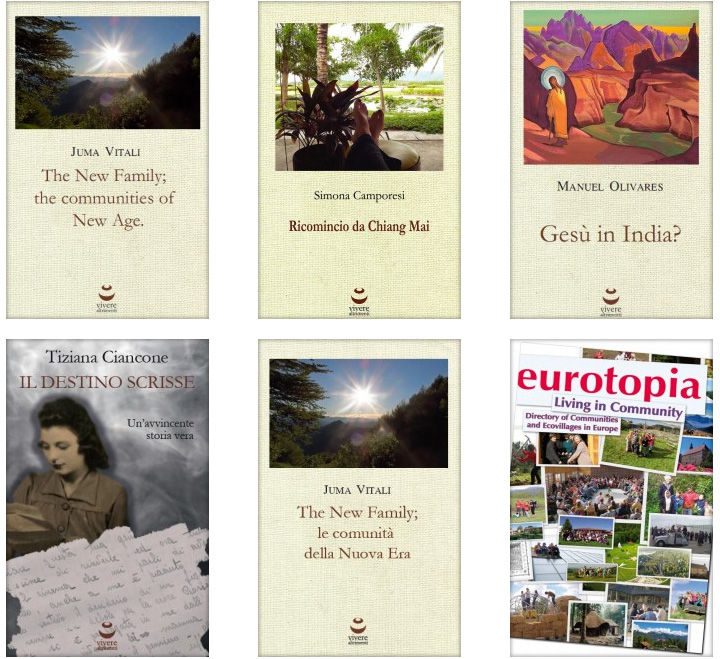 Have you ever come close to the forms of social community typical of urban centers like Rome, as much as be those in the occupied social centers or similar realities for example the italian experience of Casa Pound?
Have you ever come close to the forms of social community typical of urban centers like Rome, as much as be those in the occupied social centers or similar realities for example the italian experience of Casa Pound?
M.O. I’ve participated in the life of community centers for several years when I was younger. I found them a vital and challenging reality, despite some limitations. But now I should go back, see what has changed in the last ten or fifteen years since in this period of time I have not frequented them.
 For several years living between Italy and India, as well as having toured in other Asian countries. Your life in the Indian version how difference give in your research and your books?
For several years living between Italy and India, as well as having toured in other Asian countries. Your life in the Indian version how difference give in your research and your books?
M.O. It is banal to say India opens up unlimited horizons but it’s real. To live there for a medium or long period is a great way to discover several, multifaceted, aspects of reality. For a Westerner, being able to find a deep relationship with India means to assimilate the concept of diversity and understand its great wealth. So one of my convictions that have been consolidated in India is that we should move towards a genuinely plural society, when it is not conceivable uniformity of mankind below, for example, a monotheistic system of beliefs. I think this should be an important lesson for all those who still have an “apocalyptic vision” so that at the end of time, a belief will prevail over all others.
It may seem an abstract perspective, but it seems clear conditions in depth the relationship between the two largest universes religious in the world: Christianity and Islam. A more local level there are other fundamentalisms (for example in the field of Hindus in India, and, even, in the Buddhist context, just think of some of intolerance and persecution of ethnic and religious minorities in Sri Lanka and Myanmar) that hinder peaceful coexistence between different cultures.
I believe that even those who have committed – often deservedly – the affirmation of a belief (especially monotheistic) should value more the richness of diversity inserting their work in a plural society frame. Accept, then, that its expansion, for example in terms of conversions (I refer here to a religious dimension because it is a particularly good example, but of course can be considered, in the same way, the ideological beliefs), can not be dammed up by the space that inevitably It should be left to others. Develop, in short, an ethics of diversity and plurality, which affirms an essential respect.
I think in the great wealth of diversity, and live it is a great opportunity (I think, in this regard, to the fascinating potential that is now “the invasion of Europe” by migrants, even with all the problems that brings with it and how the prospect of built walls is poor and idiotic). The alien regenerates us, helps us to rediscover the deep key of our identity and I believe that in addition to ethics we should develop a culture of encounter and dialogue. I could tell you many other things about the teachings that I got from India and other Asian countries where I have lived for even long time. For example the rediscovery of some traditional values of our culture declined, again, in a different way. Then, their classification in a new, refreshing perspective and… we could go on and on. For now let’s stop here!
 Your latest book “Jesus in India?” wants to be join up the Asian experience and the West? How can we benefit from it?
Your latest book “Jesus in India?” wants to be join up the Asian experience and the West? How can we benefit from it?
M.O. The leitmotif of the text is the transculturality of the great historical figure of Jesus. By living a long time in India I found that also belongs to that country, much to its Hindu soul, as to its Muslim one. Doing more research in the Muslim field it is clear as Jesus (Arabic: Issa) is also widely appreciate, to quote the title of a text of a few years ago as ” prophet of Islam.” A similar improvement is found in the Buddhist context, where he is considered a bodhisattva and the esoteric field and new age (I think about the Aquarian Gospel, the responses of Edgar Cayce, the work of Givaudan and others). Mentioning the introduction to the text, “Jesus in India?”:
“A Transcultural Jesus can help to reduce the gap between worlds that are considered, perhaps mistakenly, yet very different and, at the same time, infuse new energy to a Christianity inexorably in crisis.”
We could also think the figure of Jesus as an ancient and new cornerstone of a actual globalized world, aware of its inherent plurality and whose different souls learn to dialogue in mutual respect instead of fighting, sometimes only subtly, trying to impose, each, their own religious or ideological beliefs.
A utopian vision today, but certainly you could even begin to consider as first, possible expression of the messianic era and the realization of the true Christian message!

Parole, lingua e linguaggio, arte e le nuove tecnologie sono quel filo rosso con il quale mi diverto a tessere le mie giornate. Innovazione e sviluppo di nuovi orizzonti gli spunti che mi fa piacere incontrare. Giornalista, editor, copy writer e content media. Dopo la laurea in Filosofia del Linguaggio e della Mente a Napoli, mi trasferisco a Roma dove mi specializzo in comunicazione per il web e i nuovi media e per diversi anni sono caporedattore del mensile “Next Exit, creatività e lavoro” approfondendo temi di economia della cultura. Ho curato la pubblicazione di diversi progetti editoriali, tra cui Young Blood, annuario dei giovani artisti italiani, e RomaCreativa, per fare una mappatura dei creativi italiani nel mondo e nella capitale.

Iole Chessa Olivares liked this on Facebook.
Un’intervista che stimola una grande curiosità, senza giudizi moralistici.Notevole il video allegato
Letizia Misso liked this on Facebook.